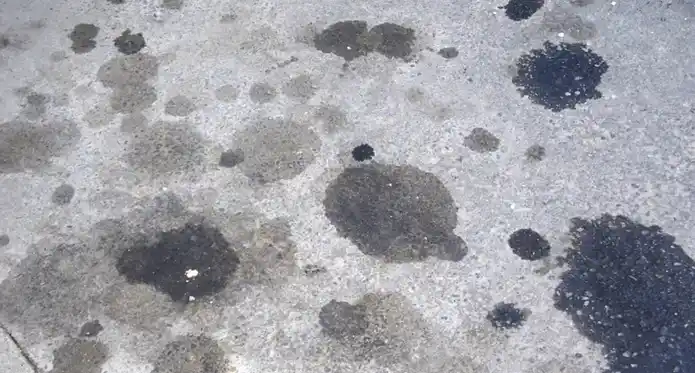Last Updated on March 12, 2023
Imagine this scenario; you are cooking in the kitchen, and your pan starts smoking. So you grab a potholder, open the oven door, and pull the pan out. Only now do you realize that the smoke was actually from the oil on the pan, which has now spilled all over your lovely clean oven floor.
Cleaning cooking oil off concrete can be a daunting task, but it doesn’t have to be. You can easily learn how to clean cooking oil off concrete using the steps provided here.
The Dangers of Cooking Oil in Concrete
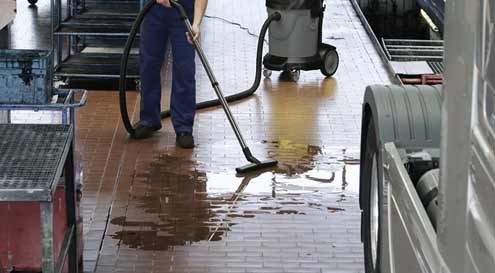
Oil spills on concrete can be a big problem. Cooking oil is one of the most difficult substances to clean off the concrete.
It’s very easy for cooking oil to seep into the concrete, causing stains and damage that will make your concrete look unattractive or even unusable in some cases. Not only do these issues affect the appearance of your space, but they can also damage its structural integrity.
Worse yet, while oil spills on concrete often look unsightly and may take a long time to clean up, the damage that’s done to the concrete is entirely permanent.
Step by Step On How to Clean Cooking Oil Off Concrete Easily?
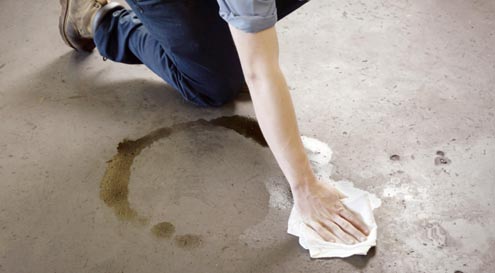
Here are some simple steps that will help you clean cooking oil off concrete quickly and easily:
1. Blot the Spill
Using paper towels, blot up as much of the oil as possible if it has only been spilled briefly.
Avoid using abrasive materials like sponges or scouring pads to remove this type of spill, as they can damage the concrete.
2. Apply Baking Soda and Water Paste
To clean cooking oil off the concrete, mix baking soda and water to create a paste. Place this paste over the remaining spill and allow it to rest for at least an hour or so before taking further action.
3. Scrub with Dish Soap
Once the paste has dried, use a scrub brush to apply dish soap to the affected area. Scrub at the baking soda and oil spill until it lifts, then rinse the entire area with water.
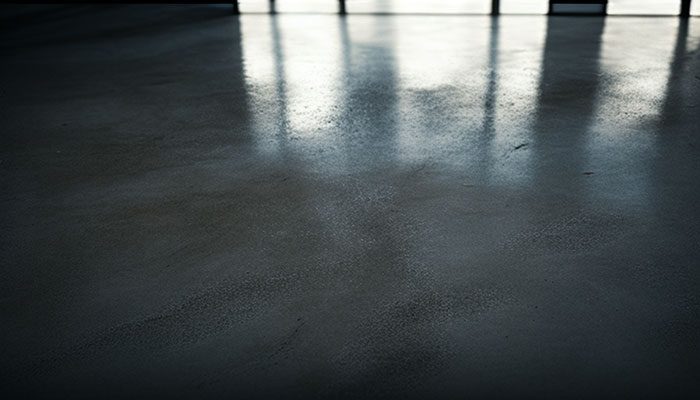
4. Dry Completely
Finally, allow the surface plenty of time to dry before using it again. Even if you’re eager to get back to using your concrete, it’s essential that you give the area plenty of time to dry before doing so.
This will help prevent any new oil stains from ruining its appearance or damaging its structural integrity.
5. Fix Problems Arising
If you’ve followed these steps and your kitchen floor is still stained with cooking oil, you may need to take further action. Visit your local hardware store and ask for help finding the right cleaning solutions designed to remove such stains from concrete.
You can also try creating a poultice out of liquid laundry detergent and warm water. Just be sure to apply it just as you would a baking soda paste.
As you can see, cleaning cooking oil out of concrete doesn’t have to be a daunting task. Just follow the steps above, and you’ll have your space looking clean and bright in no time at all.
The Benefits of Cleaning Cooking Oil Off Concrete
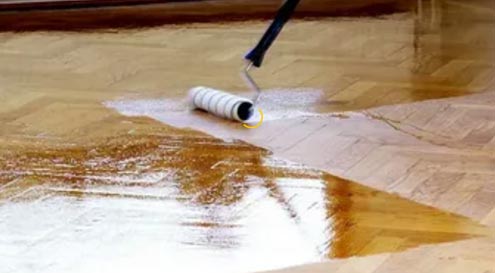
There are a lot of benefits of cleaning cooking oil off the concrete. Here are some of the benefits of cleaning cooking oil off the concrete.
- Taking proper measures to remove cooking oil from concrete can ensure that your space stays in good condition for a much more extended period of time.
- Cleaning cooking oil off your floor with a concrete cleaner will improve the overall appearance of your space. This is a great way to make sure that you brighten up your concrete in a hurry.
- Properly removing oil by concrete cleaner can help ensure that new stains don’t form in the future.
- Taking action when cooking oil spill on concrete will lead to a much more efficient clean-up process in general.
What to Do to Prevent Cooking Oil Spills?
Simple steps can help you prevent cooking oil spill from ever happening in the first place. Here are a few simple ways to avoid making such mistakes:
1. Use The Right Sized Pan
When you’re cooking, make sure to use pans that are small enough to fit comfortably in your oven. This way, they won’t tip over and cause a spill as soon as you open the door.
Plus, using smaller pans will allow you to cook more food at once, which means fewer trips to and from the oven.
2. Don’t Forget to Monitor Your Food
All it takes is one moment of distracted cooking to cause a spill, so be sure to monitor your food as you cook.
If you must leave the kitchen for any reason, turn off the stovetop or oven until you’re able to return and complete whatever task needs finishing.
3. Use The Right Utensils
To prevent spills while cooking, invest in some solid utensils that are small enough to fit inside your pans.
Using tools with long handles will only lead to more spills on the floor, so stick to using wooden or rubber spoons and spatulas that won’t cause any problems.
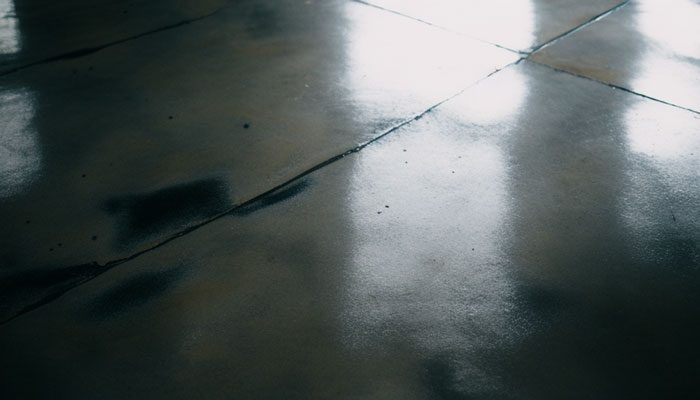
4. Keep Paper Towels and Cloths Nearby
Finally, make sure you stock up on paper towels and cloths before cooking. That way, if a spill occurs, you’ll be able to quickly and easily clean it up without making too much of a mess.
As you can see, there are plenty of ways that you can prevent spills from happening in the first place. By following the steps above, you’ll be able to keep your concrete surfaces clean and beautiful for years to come by the concrete cleaner.
Final Thought
Cooking oil spills are no fun to clean up, but they can be avoided by following the steps above. Just make sure that you’re using pans of appropriate size and warming them before adding any food, then monitor your cooking area for safety.
If a spill does happen, don’t panic! Be aware of what paper towels or cloths are nearby so that you can quickly wipe away any messes without making too big of one yourself. With these few simple tips in mind, it will be easy to keep your kitchen surfaces looking great while avoiding costly mistakes like spilling cooking oil on them in the first place.

